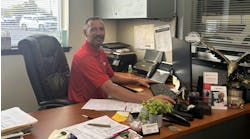Porsche is expanding and formalizing its collision repair activities in North America. In the company's first I-CAR technical clinic, presenter Mike Kukavica, collision repair technology instructor for Porsche Cars North America, announced that the German automaker is developing a Porsche-approved collision center program for its dealerships and independent repairers. Kukavica presented his technical session, "Porsche Collision Repair: The vehicles, technology and techniques," on Friday during the I-CAR International Annual Meeting. The new collision repair program was developed to improve the consistency of the customer experience and autobody repair for the company. "We want to raise the quality of the customer experience on the collision side," Kukavica says. "There hasn't been much consistency. Every dealer has their own way of handling it. They may have their own body shop, or they may refer customers to other shops in the area." Kukavica said the program would be open to independent repairers. "We are embracing independents and not treating them as second-class citizens," Kukavica said. "There will not be two different classes in the program for the dealers and independents; it will be the same for everyone." Kukavica discussed the nuts-and-bolts repair information, outlining how the body shells are assembled and the different types of metals present in the vehicles. He also covered boron components that can't be repaired, resulting in a structural total if they are damaged in a collision. Kukavica also provided an overview of Porsche's history, as well as information on the current model lineup. Porsche is currently updating the 997 generation of its popular 911 range. In June, the company released photos of the 911 Carrera Coupe, Carrera Cabriolet, Carrera S Coupe and Carrera S Cabriolet, all due in September in North America. Porsche has designed a new front bumper with larger air intakes, and made LED daytime driving lights and bi-xenon headlights standard on all new models, along with LED tail and brake lights. The next-generation 998 design of the 911 is currently being tested, and is due for release around 2010. The company also is developing hybrid models, including a gas/electric Cayenne and the Panamera, a hybrid-drive version of the Gran Turismo. |




